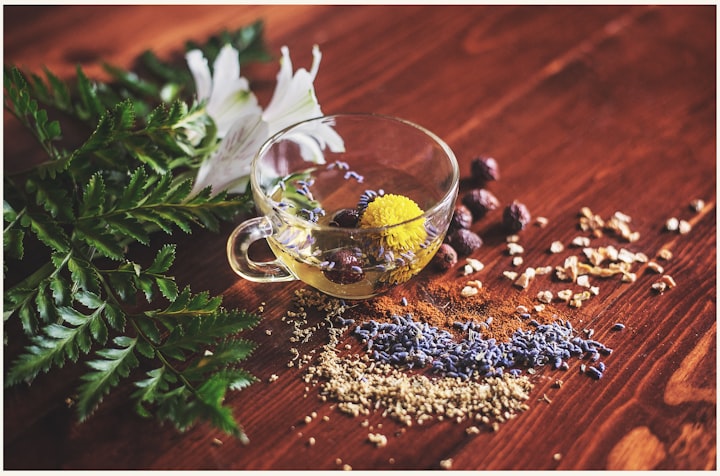
Herbs for Health is a comprehensive guide to the use of herbs for holistic healing. Written by Steven Horne, a renowned herbalist, the book covers everything from the history of herbal medicine to practical tips for using herbs in your daily life.
The book is divided into three main sections. The first section provides an overview of herbal medicine, including the history and development of the practice. Horne explains the importance of herbs in traditional cultures and how they have been used to treat a wide range of illnesses for thousands of years. He also discusses the challenges faced by modern herbal medicine, including the regulation of herbs as supplements rather than drugs.
The second section of the book is a detailed guide to individual herbs and their uses. Horne lists over 90 herbs alphabetically, providing a wealth of information on each herb, including its history, traditional uses, chemical composition, and modern applications. This section is a valuable reference for anyone interested in using herbs for medicinal purposes.
The third and final section of the book is a practical guide to using herbs in your daily life. Horne provides detailed instructions for making teas, tinctures, salves, and other herbal preparations, as well as guidelines for dosage and safety. He also includes chapters on using herbs for specific health conditions, such as digestive issues, respiratory problems, and skin conditions.
One of the strengths of Herbs for Health is the author's emphasis on holistic healing. Horne encourages readers to take a comprehensive approach to their health, using herbs as part of a larger lifestyle that includes healthy eating, exercise, and stress management. This approach is empowering, as it puts the responsibility for health and healing back in the hands of the individual.
Horne also emphasizes the importance of using herbs in a safe and responsible way. He provides guidelines for dosage and cautions readers against using herbs without proper research and consultation with a healthcare professional. This responsible approach is essential for ensuring that readers get the most benefit from herbs while avoiding potential side effects.
Another strength of the book is its accessibility. The author writes in a clear, engaging style that is easy to understand, even for those who have no background in herbal medicine. The book is also well-organized and easy to navigate, with helpful cross-references and a comprehensive index.
However, one of the potential weaknesses of Herbs for Health is that some of the information on individual herbs is repeated in multiple entries, which can be a bit tedious for readers who are looking for specific information. Additionally, the book is focused primarily on herbs that are commonly used in the United States, so readers outside of this region may find some of the information less relevant.
Despite these minor weaknesses, Herbs for Health is an excellent resource for anyone interested in using herbs for holistic healing. The book is comprehensive, accessible, and empowering, and it provides a wealth of practical information that readers can use to improve their health and well-being.
The first section of the book, "Herbal Medicine: An Overview," provides a fascinating introduction to the topic. Horne explains that herbal medicine has been used for thousands of years and is still an important part of traditional medicine in many cultures around the world. He describes the development of modern medicine and the role of herbal medicine in this context. Horne also discusses the current state of herbal medicine in the United States and the challenges faced by practitioners in this field.
One of the key takeaways from this section is the importance of understanding the whole person when treating illness. Horne emphasizes that holistic healing is about treating the underlying causes of illness rather than just the symptoms. He explains that herbal medicine can be used to address physical, emotional, and spiritual imbalances, and that a holistic approach is essential for achieving optimal health and healing.
The second section of the book, "Herbs A-Z," is a comprehensive guide to individual herbs and their uses. Horne lists over 90 herbs alphabetically, providing a wealth of information on each herb, including its history, traditional uses, chemical composition, and modern applications. This section is a valuable reference for anyone interested in using herbs for medicinal purposes.
Each entry for an herb includes a detailed description of the plant and its properties, along with information on how it has been traditionally used and what modern research has shown about its potential benefits. Horne also includes information on the best ways to prepare and use each herb, including dosages and safety considerations.
One of the strengths of this section is that Horne includes information on less commonly known herbs, such as chaparral, which has been used in traditional medicine for its antimicrobial and anti-inflammatory properties. Horne also includes information on common culinary herbs, such as rosemary and thyme, and how they can be used medicinally.
The third and final section of the book, "Using Herbs in Your Daily Life," is a practical guide to using herbs in your everyday routines. Horne provides detailed instructions for making teas, tinctures, salves, and other herbal preparations, as well as guidelines for dosage and safety. He also includes chapters on using herbs for specific health conditions, such as digestive issues, respiratory problems, and skin conditions.
This section is particularly valuable for those new to using herbs, as it provides step-by-step instructions for preparing and using herbs in a safe and effective way. Horne also emphasizes the importance of using herbs in conjunction with other healthy lifestyle choices, such as eating a nutritious diet and getting regular exercise.
One of the strengths of this section is that Horne includes specific recommendations for using herbs for common health issues, such as stress, insomnia, and headaches. He provides information on which herbs are best suited for each condition, as well as tips for incorporating them into your daily routine.
Overall, Herbs for Health is an excellent resource for anyone interested in using herbs for holistic healing. The book is comprehensive, accessible, and empowering, and it provides a wealth of practical information that readers can use to improve their health and well-being. Horne's emphasis on holistic healing and responsible use of herbs is refreshing and empowering, putting the responsibility for health and healing back in the hands of the individual. Whether you are new to herbal medicine or a seasoned practitioner, Herbs for Health is a valuable resource that you will turn to time and time again.
About the Creator
Aron38
short story lover






Comments
There are no comments for this story
Be the first to respond and start the conversation.